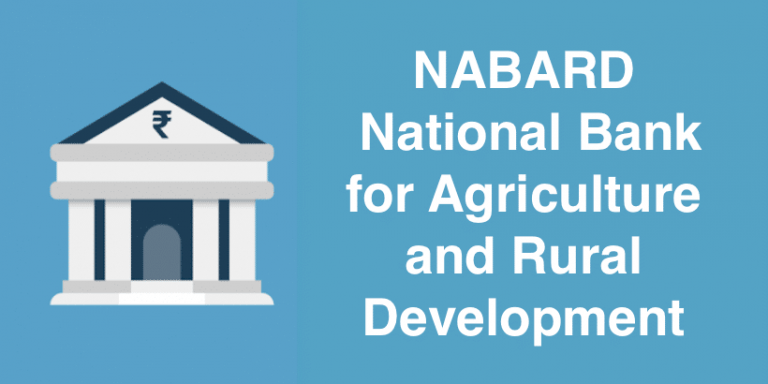NABARD: Till late 1970s there was no institutional credit arrangement for Agriculture and Rural credit in India. The needs were looked after by Reserve Bank of India and Agricultural Refinance and Development Corporation (‘ARDC’). However, the importance of institutional credit in boosting rural economy has been clear to the Government of India right from its early stages of planning.
Therefore, the Reserve Bank of India (RBI) at the insistence of the Government of India, constituted a Committee to Review the Arrangements For Institutional Credit for Agriculture and Rural Development (CRAFICARD) to look into these very critical aspects. The Committee was formed in 30 March 1979, under the Chairmanship of Shri B. Sivaraman, a former member of Planning Commission, Government of India.
National Bank for Agriculture and Rural Development
The Committee’s interim report, submitted in November 1979, outlined the need for a new institutional arrangement for providing attention, direction and focus to credit related issues linked with rural development. It recommended for formation of a unique development financial institution which would address these aspirations and this lead to the formation of National Bank for Agriculture and Rural Development (NABARD) as approved by the Parliament through Act 61 of 1981
NABARD came into existence in July 1982 by transferring the agricultural credit functions of RBI and refinance functions of the then ARDC. It was dedicated to the service of the nation by the then Prime Minister in November 1982.
Set up with an initial capital of Rs.100 crore, its’ paid up capital stood at Rs. 5,000 crore as on 31 March 2016. Consequent to the revision in the composition of share capital between Government of India and RBI, NABARD today is fully owned by Government of India. NABARD is involved directly and indirectly in an extensive manner in financing of agriculture, rural development apart from extension activities and supervisory roles. A brief on the same is as follows:
Direct Finance in the form of Loans for Food Parks and Food Processing Units in Designated Food Parks, Loans to Warehouses, Cold Storage and Cold Chain Infrastructure, Credit Facilities to Marketing Federations, Rural Infrastructure Development Fund, Direct Refinance Assistance to Co-operative Banks, Financing and supporting Producer Organisations, More Direct Finance in the form of Infrastructure Development Assistance, Financing and developing Primary Agricultural Co-operative Societies and Umbrella Programme for Natural Resource Management. NABARD is also involved in short term and long term refinancing of agriculture loans to various banks and other agencies apart from refinancing under off-farm sector.
NABARD in its developmental role, is involved in efficient credit delivery systemto service the needs of agriculture and rural development. Since more than 50% of the rural credit is disbursed by the Co-operative Banks and Regional Rural Banks (RRBs) NABARD is responsible for regulating and supervising Co-operative banks and RRBs. In this direction NABARD has been taking various initiatives in association with Government of India and RBI to improve the health of Co-operative banks and Regional Rural Banks. Apart from this, NABARD is also involved in Financial inclusion, Micro credit and Micro credit innovation, Core Banking Solution to Co-operative Banks, Climate change, to name a few.
In its supervisory role as empowered by Section 35(6) of the Banking Regulation Act, 1949, NABARD conducts inspection of State Cooperative Banks, Central Cooperative Banks and RRBs. On its own, on a voluntary basis NABARD conducts periodic inspections of state level cooperative institutions such as State Cooperative Agriculture and Rural Development Banks (SCARDB), Apex Weavers Societies, Marketing Federations etc.
Related Articles
